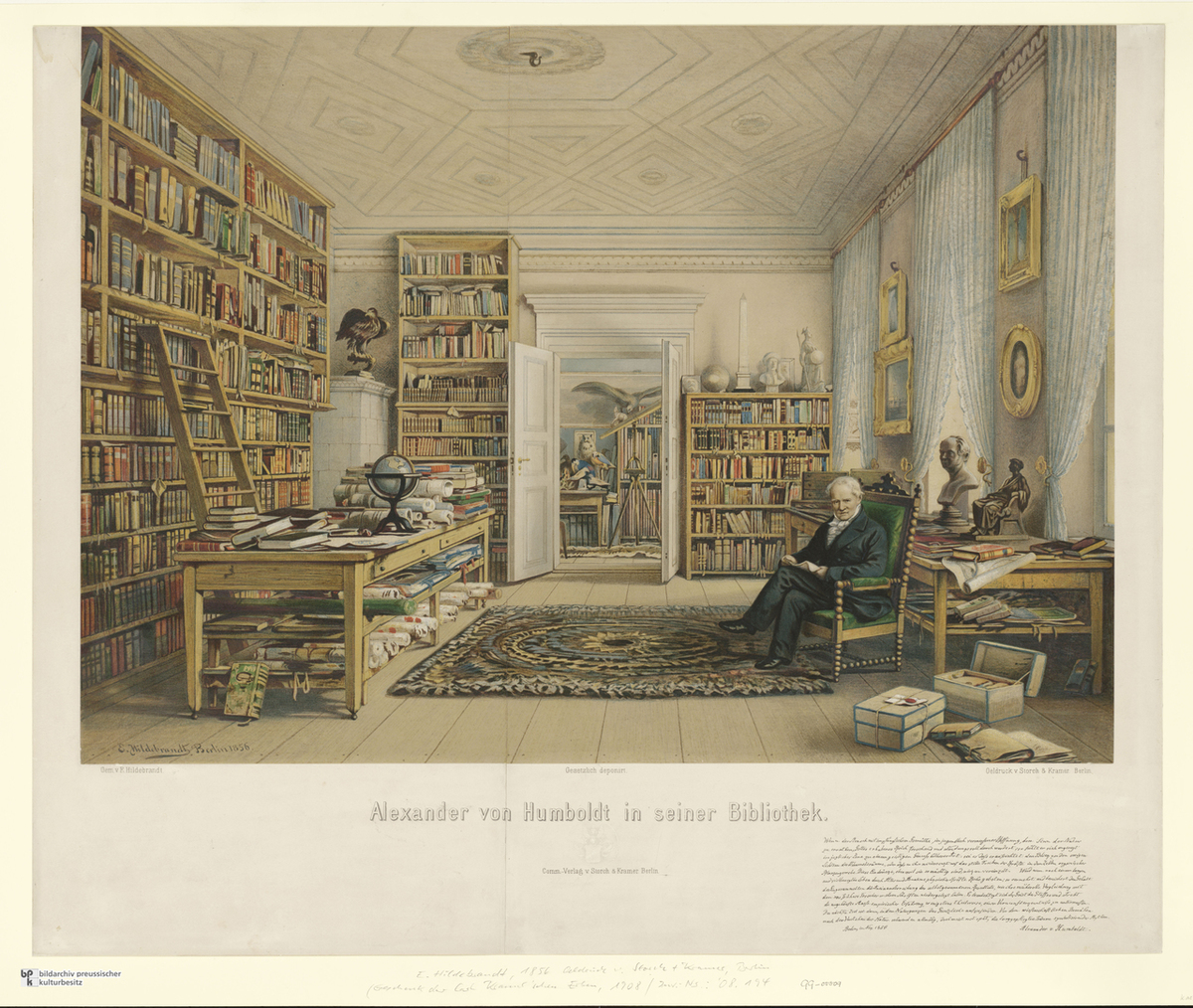Alexander von Humboldt in the Library of his Berlin Apartment on Oranienburger Straße (1856)
Abstract
Alexander von Humboldt (1769–1859) had a significant impact on German science in the nineteenth century. Romantic philosopher, explorer, theorist of scientific practice, and more, the Prussian naturalist laid the foundations for botanical geography and pointed the way to scientific breakthroughs of persistent relevance. (Humboldt, for instance, was a pioneer in the field of geomagnetic assessment and an early predictor of the perils of human-induced climate change.) Here, we see him in his private library. It includes all of the trappings of bourgeois enthusiasm for modern learning: globes, taxidermied animals, telescopes and other scientific kit, pluriform books for study and display, and the busts of revered thinkers and artists. Beyond its appeal to scientific knowledge, the image also suggests a connection between work and educated leisure within the bourgeois social ideal. Lithograph (1856) after a watercolor by Eduard Hildebrandt.
Source

Source: Alexander von Humboldt sitting in the library of his apartment at 67 Oranienburger Straße in Berlin.
© bpk / Kunstbibliothek, SMB / Dietmar Katz